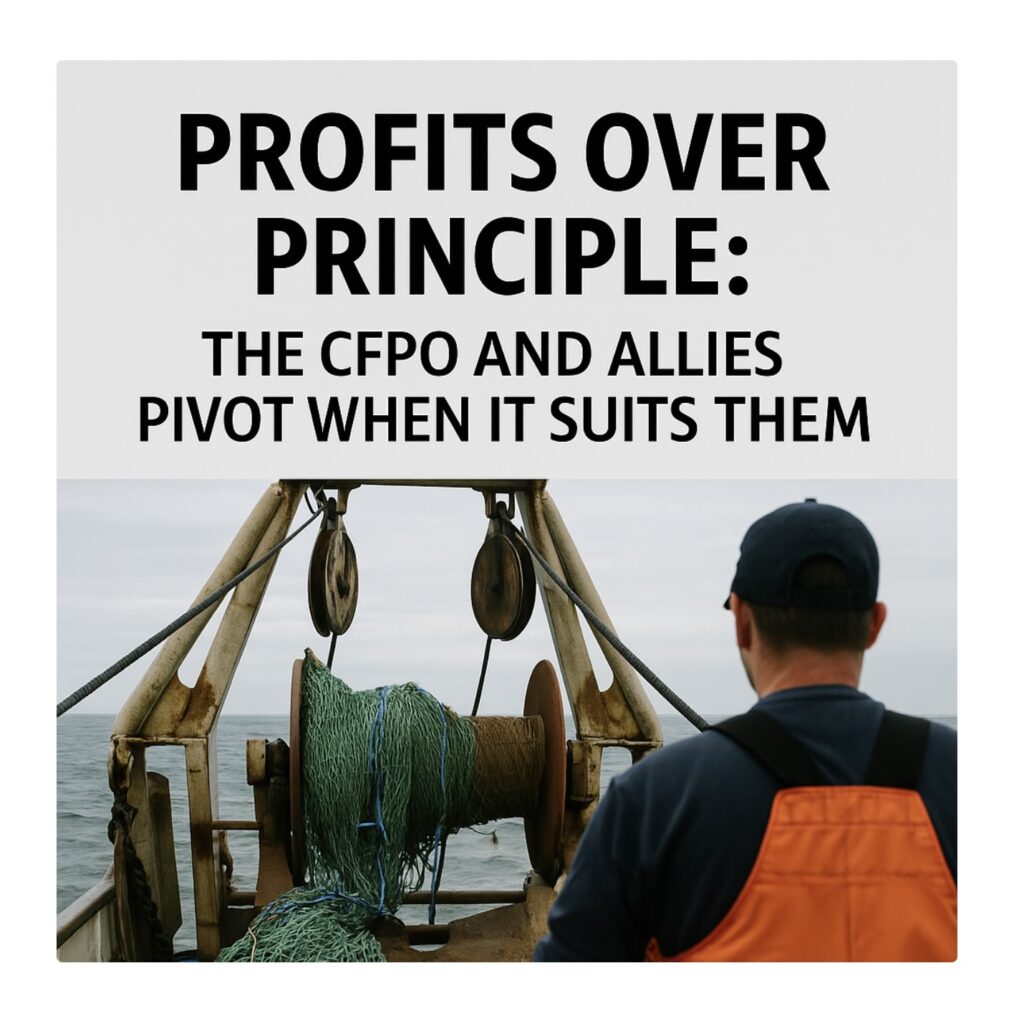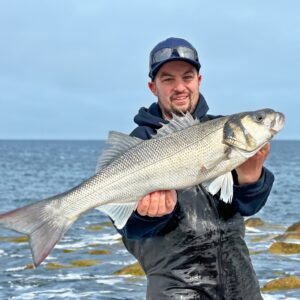Profits over principle: The CFPO and allies pivot when it suits them
The joint statement issued by the CFPO and its continental counterparts under the Mid Channel Conference banner is a remarkable exercise in revisionist positioning. It attempts to present a united and principled defence of European fisheries against Marine Protected Areas (MPAs), but it conveniently forgets one glaring fact: many of the CFPO’s newly minted “allies” were, until very recently, the very targets of its anti-foreign rhetoric.
Not long ago, the CFPO was loudly calling for the removal of EU vessels from UK waters, citing sovereignty, fairness, and national control. These calls included the very same Dutch beam trawlers and French vessels whose logos now adorn a shared letter defending collective fishing rights. How quickly those nationalist priorities dissolve when profits are at stake.
“Our fishers”? Or your interests?
The emotional appeal of “where will our fishers still be allowed to fish?” rings hollow when the very organisations now preaching unity had no issue campaigning for the exclusion of others when it was politically expedient. This isn’t about shared stewardship or community resilience, it’s about access and extraction. Now that spatial restrictions are being proposed in the name of ecological recovery, the coalition cries foul, ignoring the far greater spatial squeeze imposed by industrial trawling on small-scale and low-impact fisheries.
If this is truly about the future of local food systems and cultural heritage, perhaps those leading the charge should begin by addressing the impact of their own fleets. Trawling in high-resilience sediments is still trawling. The claim that such habitats can absorb impact without consequence lacks rigour and overlooks the ecological connectivity of benthic systems. Pressure may differ by substrate, but impact is not erased by sediment type. Areas may no longer have a benthic habitat to protect because of years of excessive bottom trawling pressure, but they may have one worth restoring.
The myth of innovation and sustainability
The document insists that fishers are already doing enough to reduce impact, through gear innovation, closures, and planning, but neglects to ask: where is the evidence of net ecological benefit? Less than 50% of species in UK waters are deemed to have a good environmental status. Spatial displacement, cited as a concern, is itself a known consequence of the industrial sector’s historic dominance. If we continue to treat all effort as equal, we overlook the disproportionate harm caused by the most extractive methods.
Furthermore, the statement’s call for “partnership with fishers” presumes that those fishers are a monolith. They are not. The voices of small-scale, sustainable operators, those most likely to suffer under current quota systems and spatial marginalisation, are notably absent from this alliance. Instead, we hear from the same industrial actors who oppose scrutiny and who benefit from regulatory capture.
A call for meaningful protection, not media manoeuvres
The joint letter criticises “declarations crafted for headlines or social media,” yet it reads like precisely that: a polished PR piece meant to muddy the waters ahead of meaningful MPA reform. It positions the sector as a victim of poor consultation rather than a major contributor to marine degradation.
The demand for a “case-by-case” approach is valid in principle, but only if it includes genuine ecological assessment and a rebalancing of priorities, not merely the continuation of business as usual under the banner of compromise.
A Convenient Extension?
When the industrial fishing sector demands more time, they get it. We saw this with the Bass Fisheries Management Plan: the consultation deadline was quietly extended, not because of public demand, but because the commercial sector had failed to engage, while recreational and environmental stakeholders had already submitted in volume.
So let’s be clear: the call for an extension to the Stage 3 MPA consultation until November will almost certainly be granted, not because of fairness or complexity, but because it serves the interests of those with the most to lose from environmental progress. Never mind that this is already the longest consultation window currently open across all marine consultations under Defra or the MMO.
So where is their request for more time on the Marine Strategy consultation, the one that underpins the broader ecological direction of UK marine policy? There isn’t one. Because that consultation offers continuity, not change. Because they are never concerned by the status quo, despite their claims to wish to drive change from within, only by the prospect of meaningful reform.
Conclusion:
The CFPO and its allies cannot have it both ways. They cannot call for exclusion one day and inclusion the next, depending on what preserves their bottom line. The real threat to sustainable fishing and coastal communities is not Marine Protected Areas, it is the unchecked influence of the same industrial fishing lobby that now claims to speak for “our fishers.”
If marine protection is to mean anything, it must begin with an honest reckoning of who has benefited from the status quo, and who has paid the price.







